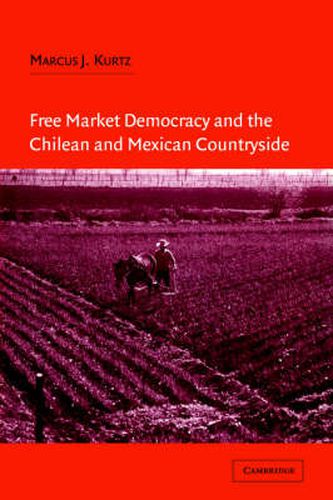Readings Newsletter
Become a Readings Member to make your shopping experience even easier.
Sign in or sign up for free!
You’re not far away from qualifying for FREE standard shipping within Australia
You’ve qualified for FREE standard shipping within Australia
The cart is loading…






This book examines the relationship between free markets and democracy. It demonstrates how the implementation of even very painful free market economic reforms in Chile and Mexico have helped to consolidate democratic politics without engendering a backlash against either reform or democratization. This national-level compatibility between free markets and democracy, however, is founded on their rural incompatibility. In the countryside, free market reforms socially isolate peasants to such a degree that they become unable to organize independently, and are vulnerable to the pressures of local economic elites. This helps to create an electoral coalition behind free market reforms that is critically based in some of the market’s biggest victims: the peasantry. The book concludes that the contemporary prevalence of comparatively stable free market democracy in Latin America hinges critically on its defects in the countryside; conservative, free-market elites may consent to open politics only if they have a rural electoral redoubt.
$9.00 standard shipping within Australia
FREE standard shipping within Australia for orders over $100.00
Express & International shipping calculated at checkout
This book examines the relationship between free markets and democracy. It demonstrates how the implementation of even very painful free market economic reforms in Chile and Mexico have helped to consolidate democratic politics without engendering a backlash against either reform or democratization. This national-level compatibility between free markets and democracy, however, is founded on their rural incompatibility. In the countryside, free market reforms socially isolate peasants to such a degree that they become unable to organize independently, and are vulnerable to the pressures of local economic elites. This helps to create an electoral coalition behind free market reforms that is critically based in some of the market’s biggest victims: the peasantry. The book concludes that the contemporary prevalence of comparatively stable free market democracy in Latin America hinges critically on its defects in the countryside; conservative, free-market elites may consent to open politics only if they have a rural electoral redoubt.